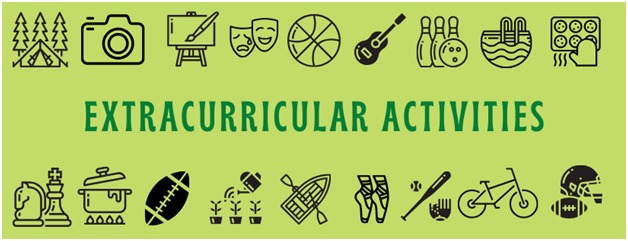Education & Career Trends: November 26, 2024
Curated by the Knowledge Team of ICS Career GPS

Article by Mr.Vinu Warrier Published on Indiatoday.in
In today’s competitive academic world, succeeding in studies alone isn’t enough to stand out. Colleges and employers alike seek individuals who are not only academically sound but also possess diverse skills, leadership qualities, and a proactive approach to life. This is where extracurricular activities come into play, offering students the chance to build skills beyond the classroom that are crucial for their future success. For those aspiring to excel in both college and their careers, balancing academics with extracurricular activities is key.
- Balancing academic pressure
While academic success demands focus and hard work, extracurricular activities provide a healthy break from this pressure. Engaging in sports, clubs, or the arts allows students to step away from the grind of studies and return with renewed energy and a fresh perspective. It’s not just about relaxing—it’s about rejuvenating the mind and enhancing creative abilities. Students who participate in extracurriculars often find that they can approach academic challenges with improved problem-solving skills and a more open mindset. This balance helps students stay mentally healthy while tackling the demands of their academic life.
- Developing critical life skills
Extracurricular activities are a vital part of developing a wide range of skills essential for personal growth and professional success. Participating in clubs, sports, debates, or volunteer work helps students build communication, teamwork, and leadership skills. These activities teach students how to collaborate, make quick decisions, and solve real-world problems.
Moreover, extracurriculars teach resilience and adaptability, qualities that are highly valued in both academic and professional environments. Students who engage in these activities learn to manage their time effectively, balance responsibilities, and maintain a positive attitude under pressure. These experiences also help build long-lasting relationships and enhance emotional intelligence.
- Exploring identity and interests
Extracurricular activities provide students with the opportunity to explore interests outside of academics. College is a time for self-discovery, and through these activities, students can uncover new passions and hobbies. For example, a student studying engineering might find an interest in theatre, photography, or music. These interests could become lifelong hobbies or even evolve into career opportunities down the line.
Exploring various interests helps students build their identity beyond academics. It allows them to become more self-aware, confident, and open-minded. Whether it’s performing in a play, leading a club, or volunteering for social causes, these activities help students shape their personal and professional identities in meaningful ways.
- Versatility for future success
Participating in extracurricular activities demonstrates versatility, a trait highly appreciated by both colleges and employers. Engaging in diverse activities such as debates, sports, internships, or volunteering highlights a student’s ability to multitask and handle various responsibilities. This versatility reflects an adaptability that is crucial in both academic and professional settings.
Employers look for individuals who can balance multiple tasks, manage time effectively, and thrive in dynamic environments. Extracurricular involvement prepares students for the demands of the real world, helping them develop skills like leadership, teamwork, and problem-solving that are essential in today’s competitive job market.
- Social impact and community engagement
Extracurricular activities also allow students to contribute to their communities through volunteering and social work. These experiences help build empathy, compassion, and a sense of social responsibility. Community service broadens a student’s understanding of societal challenges and inspires them to take proactive steps to address these issues.
Engaging in social impact activities makes students more aware of their role in society and helps them become responsible citizens. These experiences are not only personally fulfilling but also highly valued by colleges and employers who seek individuals with strong ethical values and a commitment to making a positive difference.
- Time management and leadership
Extracurricular activities teach students essential time management skills. Balancing academics with other commitments helps students prioritize their tasks and meet deadlines, preparing them for the professional world where multitasking is often required. Additionally, students who take on leadership roles in clubs, sports teams, or social projects gain invaluable experience in motivating others, making decisions, and overcoming challenges.
- Networking and future opportunities
Extracurriculars offer a platform to build valuable networks that can open doors to future opportunities. Whether through participating in competitions or volunteering, students have the chance to connect with peers, mentors, and professionals who can help guide their career journeys. These networks often lead to internships, job opportunities, or even recommendations for higher education.
Conclusion
Extracurricular activities are essential for personal development and future success. They help students build critical life skills, explore new interests, and make meaningful social contributions. Balancing academics with extracurricular involvement not only enhances students’ college experience but also prepares them for the professional challenges that lie ahead. In today’s world, engaging in extracurricular activities is more than just a way to fill time—it’s a key to unlocking a successful, well-rounded future.
…
Have you checked out yesterday’s blog yet
Practical Tips for Students to Combat Poor Air Quality
(Disclaimer: The opinions expressed in the article mentioned above are those of the author(s). They do not purport to reflect the opinions or views of ICS Career GPS or its staff.)
Like this post? For more such helpful articles, click on the button below and subscribe FREE to our blog.



